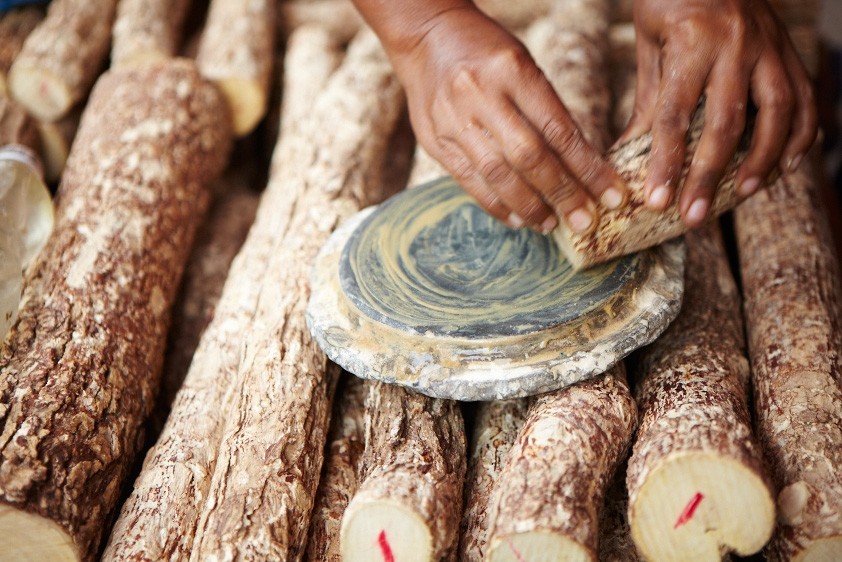Culture
Myanma Thanakha
- Details
- Hits: 4417
 Myanma Thanakha
Myanma Thanakha
Photo Credit - www.easia-travel.com
Prim city matrons are loud in their grouse and usually their discontent is with the spiraling of prices of meat and fowl. Now. it is also scarcity of coconut hair oil and. as a last straw. the forbidding prices of Thanakha.
Thanakha - botanical term (Limonia Acidissma Linn ) is essential as well as a favorite cosmetic which comes in the form of a yellow paste applied to the face and goes under the name of Thanakha. Hence. this has developed into a topic of lively comment in the Myanmar Media.
The origin of Thanakha is scarely capable of being historically traced as it springs from the earliest glimmerings of civilization. The Queen of Peikthano (Srikhsetra Over 2.000 years ago has been recorded as a lover of "thanaka". Following the destruction of the Shwemadaw Pagoda in the earthquake of 1930. the clearing the ruins there led to the discovery of a circular stone slab used by Princess Razadatukalya. daughter of Hanthawaddy Sinbyshin Minn for grinding the Thanakha bark . Afterwards. the slab was donated to the Pagoda as a valuable antique.
Myanmar Feminine society is possibly composed of the world's lovers of perfumed wood. but. through illumination provided by history. not exclusively so. Greek. Phoenican and Roman galleys bringing oriental merchandize rarely forgot to include cargoes of scented wood. But probably. in those ages it was too precious to be afforded by woman commoners. Scented wood could only find their way into the boudoirs of aristocratic beauties such as Cleopatra. And for those ancients. as perhaps also for the modern man. a small casket made of perfumed wood would be an ideal present for someone we wish to honour or please. or both.
Some say. Thanakha is conspicuous as a rarity among urban Myanmar womenfolk. I wonder. It is admittedly far less used in town than in the countryside. But it does command an appreciable scale of appeal amongst townspeople. While the Modern Miss might not use it when going around the town. as a rule she does favour it as a finishing touch after a bath when at home. for the "thanaka" is fragrant in addition to having an astringent quality. Now. maybe it is faced with competition from modern beauty aids.
But feminine trends in fashion are unpredictable. Now and then. after a fleeting craze for the new-fangled. they surprisingly revert to the traditional. Of course. it is in the Myanmar village that the practice of applying Thanakha regularly is rooted so strongly as to defy the impact of time. But it draws its strength not from any sentimental attachment for it on the part of the rural public. But rather because it is still cheap. Unlike face powder. its stays fresh and keeps its dainty smell for a considerable length of time. It also possesses a little something that its competitors in trade have not got. For Thanakha means not only a cosmetic for beautifying the face. It is also a cleansing agent possibly without compare for uniqueness. It is a blessing in tropical heat. It removes body odours. Because of such attributes. Thanakha is used by many men and woman in villages and not a few towns.





